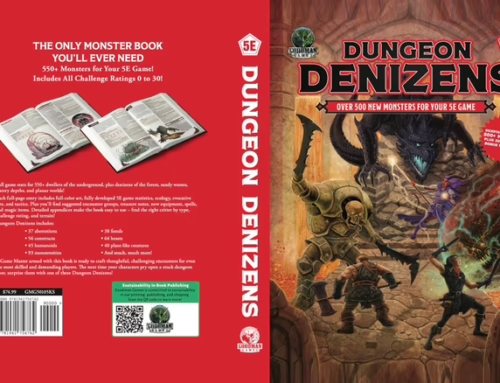These are exciting times for writers, I’ve been told. Often.
Never mind that fewer hardcover and paperback books are being printed and distributed throughout the country. Even though brick-and-mortar bookstores are going the way of the typewriter, I’ve been assured there’s a bright dawn on the horizon for those who have stories to share with the world.
Thanks to the Internet, e-books and a cornucopia of other online resources, it’s easier than ever for fiction to flow from writer to reader.
The traditional publishing model, if not dying, is being forced to evolve. And while The Way Things Are shift closer to The Way Things Were, many people are celebrating the fact that electronic formats make self-publishing an option for anyone with a tale to tell.
Consider this excerpt from Social Media Today’s “How Social Media is Changing the Publishing Industry”:
“The days of having a book in your head and never seeing (sic) in print are long gone. Any writer or author can now bring their (sic) book to life with self-publishing and a viral social media campaign.”
Am I the only one who doesn’t necessarily see this as a good thing?
Let’s start with some of the pros for self-publishing:
- A self-published author can earn more money per book sold.
- Social media channels give writers the ability to plug their product 24/7.
- There’s no editor to say, “No, your work isn’t good enough.” ANYONE CAN PUBLISH A BOOK!!!
Why wouldn’t previously unpublished novelists be throwing their hats in the air? No more rejection letters from big, bad publishing companies! You always suspected the public would rave over your book, and now there’s no hoity-toity, fascist editor to block your progress.
At last, the Internet has made the publishing industry a democracy, where the people can choose what they want to read out of the widest array of possibilities imaginable!
But here’s the thing: even though the old system was imperfect (as evidenced by the apparent decline of traditional publishers and an ever-decreasing number of new authors sharing shelves with the few big names), I actually liked the idea of having professionals decide which manuscripts get the thumbs up or thumbs down—even if it meant getting rejected. The bar was set high, and I was happy to have something to work toward.
And because I’m a reader as well as a writer, I like going into a bookstore and knowing that the hard-copy occupants of those many shelves were pre-screened by someone who understood what was likely to be popular and, therefore, enjoyed by one or more target audiences. I liked the fact that there were bookstores…
Sadly, I see the landscape of e-publishing not as a democracy, but as anarchy. In an online arena where any word-slinger can make his or her mark on any number of websites, the average reader has to spend as much time dodging egregious affronts to the English language as finding exactly what he or she was looking for. There used to be a “right way” to get published; now anything goes.
It’s like the Wild West, which was also free-spirited—but ultimately dangerous—place.
So when I hear the occasional success stories of those who have self-published or signed on with one of the many small online presses and made a ton of dough, my inner cynic can’t help but chime in:
- A self-published author can earn more money per book sold, but there’s no guarantee anyone is going to find or download your book, and the more wannabes who put a 99-cent price tag on their novels—or worse, give it away for free simply because they want readers—the actual value of books go down in the public’s mind.
- Social media channels give writers the ability to plug their product 24/7, which means that anyone who ever wanted to write the Great American Novel (or yet another Twilight rip-off) is doing the exact same thing, so good luck getting noticed.
- There’s no editor to say, “No, your work isn’t good enough.” ANYONE CAN PUBLISH A BOOK!!! Which means for everyone decent book out there, readers will have to sift through hundreds of horrible manuscripts that shouldn’t have seen the light of day.
Or the glow of an e-reader, for that matter.
The fact that the article excerpt above contained two grammatical errors in the first two sentences only underscores my concern of quantity trumping quality. Just because anyone can write and publish his or her work in a digital format, it doesn’t mean he or she should.
This Wild West of the written word—while an exciting environment for dabblers; experimenters; and writers who don’t mind making time to be their own editors, publishers, and publicists—presents a more pessimistic scenario for readers, who will have to sift through a lot of worthless rocks to find those sparkling gold nuggets.
And writers those who have the raw talent and the fortitude to hone their craft (and make it darn near perfect before publishing it one way or another) will have to depend a lot on the luck of the draw.
Eventually, however, the Wild West will be tamed, and a status quo will come to the formerly anarchic arena of online publishing. A just system will emerge to distinguish the true talents from the dreamers. Hopefully, more authors will find financial success because there will be more opportunities than before the “Gold Rush” and less competition from all the cowboys who thought having Microsoft Word and an idea or two were enough to qualify them as good writers.
So even though I should be thankful to living in a time when, theoretically, I can get my fiction in front of as many readers as possible, I’m far more thankful for the opportunities that remain for selling my manuscript to a traditional publisher and that there’s still a chance I might see one of my novels, as a hardcover or paperback, in an actual bookstore.


Leave a comment